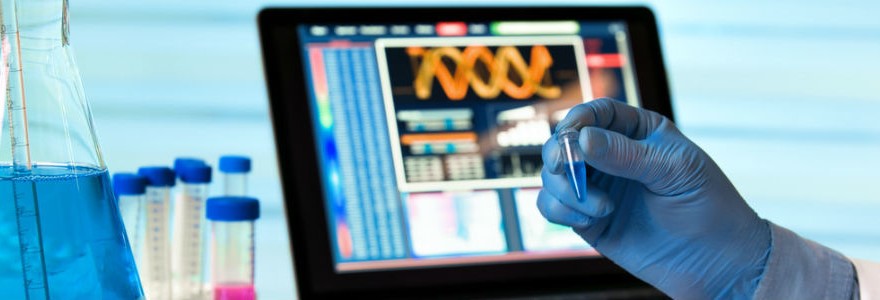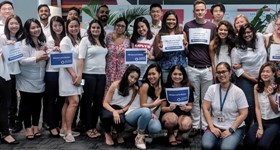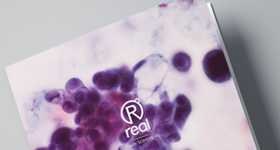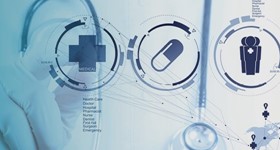Overview of the pharmaceutical industry in Singapore 2017-2018

With a modest market share of $948 million in 2017, Singapore’s pharmaceutical sector is set for a promising growth, projecting to reach $1.2bn by 2020 according to GlobalData.
More manufacturing and research and development (R&D) facilities are making its way to this city-state that offers an excellent environment for biomedical science companies. This includes low-labour costs and strong support from the government who has also invested heavily to attract foreign investment within the sector.
Growth in 2017 was further catalysed by the curation of innovation clusters, boasting customised medical technology hubs such as MedTech, Biopolis and Tuas biomedical park. These hubs are strategically placed to give companies access to multi-disciplinary capabilities at a single location.
Apart from housing biomedical research facilities as well as encouraging R&D, the nation is a hub for biopharmaceuticals and biotechnology firms to grow and materialise their expansion plans.
What are some of the companies to look out for within the biopharmaceutical sector?
- Tessa
Immunotherapy is fast becoming a key component of cancer treatment and Tessa is at the frontier of this field. It is projected that the market may value Tessa at over $500 million within the next 12 to 18 months with the support of its engagement with various medical partners across the globe.
Particularly in Singapore, Tessa is engaged with building Singapore’s biotech ecosystem and has forged collaborations with the National Cancer Centre as well as A*Star's IMCB. The Singapore Cancer Centre is one of more than two dozen sites in five countries that would investigate Tessa’s treatment, known as TT10, in its ability to prolong survival compared to conventional therapy. This will be conducted with patients who suffer from advanced cancer of the nasopharynx – the area behind the nose and above the soft palate – linked to a viral infection.
If successful, Tessa’s therapies would represent a triumph from Singapore’s multibillion-dollar foray in life sciences and an endorsement of a government-backed program to entice some of the world’s leading experts in the field to this city-state.
While surgery, radiotherapy, chemotherapy and targeted drug therapies have each boosted cancer survival over the past two centuries, immunotherapy is an emerging frontier across Asia that can create massive positive impact. Revenue from treatments within this field is increasing at a rate of 14% a year and would reach $119.4 billion globally by 2021, according to MarketsandMarkets.
- Viiv
Viiv, subsidiary of GSK specialising in human immunodeficiency virus (HIV) and Acquired Immune Deficiency Syndrome (AIDS) is currently undergoing a large study to confirm results that were testing a combination of two HIV drugs – Viiv Healthcare's Cabotegravir and Janssen's Rilpivirine. Although Viiv is currently at Phase 3 HIV of its study and is projected to have a positive outlook, it is also facing stiff competition from Gilead. The latter is building on a 20-year-old strategy by combining three drugs to control the AIDS virus, while GSK attempts to rewrite treatment standards by delivering cheaper two-drug regimens with fewer side effects.
The Unity Tool by Viiv was also launched as an interactive online resource designed by HIV advocacy groups, healthcare providers and GSK/ViiV Healthcare to improve treatment outcomes and optimise treatment beyond control of the HIV virus. This is done by helping patients feel more comfortable in disclosing their health needs. With the progress of society becoming more tech-savvy, the medical industry would also be able to take advantage of this to cater better services to its consumers.
With nearly 2 million new infections globally each year, researchers are pushing forward with new approaches towards diseases that are increasingly an issue for older patients who have been kept alive by modern drugs but are then more vulnerable to side effects. Although the Ministry of Health (MOH) had mentioned that the number of HIV and/or AIDS cases reported in Singapore had been declining over the previous three years – 456 cases in 2014, 455 cases in 2015, and 408 cases in 2016 – there were still a relatively high number of 361 new cases between January and October in 2017.
Viiv will continue to focus on its pharmaceuticals division in 2018, alongside respiratory medicine, after deciding to cutback in other areas.
- Ipsen
Sales in Asia, particularly China has dropped from EU$156 million in 2016 to EU$150.2 million in Q3 of 2017. Nevertheless, Asia still remains a strategic region that contributes to its overall growth, across R&D, manufacturing, and patients’ access to medicines.
While the focus is on its expansion plans of the development within specialty-care drugs, Ipsen plans to keep its consumer business because of the generation of its cash flow.
In 2017, Ipsen bought rights to a pancreatic cancer treatment called Onivyde from Merrimack Pharmaceuticals Inc. and in 2016, it bought rights to Cabometyx, a drug for kidney cancer that it is now looking to expand its use. In light of fierce competition, Ipsen has also raised its interest in seeking acquisitions within the area of experimental medicines.
What are the challenges in hiring with major expansion plans?
As a leading biomedical hub in Asia, Singapore’s pharmaceutical roles now require more specialised skill sets to undertake such innovative research projects. Although the government is investing heavily in the development of specialised talent within this industry, there are still niche positions where there is a lack of suitable local manpower in the area of biopharma. Hence, Singapore’s ability to attract and retain highly skilled employees would pose as a major challenge.
Furthermore, given that the sector is cutting on costs with more budget allocated to innovative technologies, pharmaceutical plants are hence inclined towards fewer hiring but a higher expectation on highly-niched and skilled talent. With more complex drugs emerging in the market, technological literacy is a skillset that is crucial to ensure the productivity of new operations.
If you would like to gain more insights in the sector for the pharmaceutical market, or are interested in building your talent pipeline for the coming 2018, do visit our LinkedIn page for other industry related updates.




